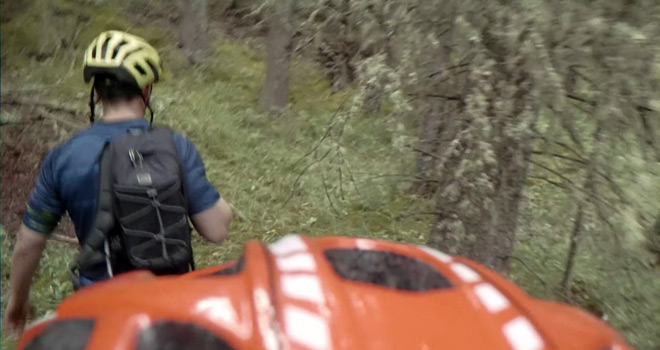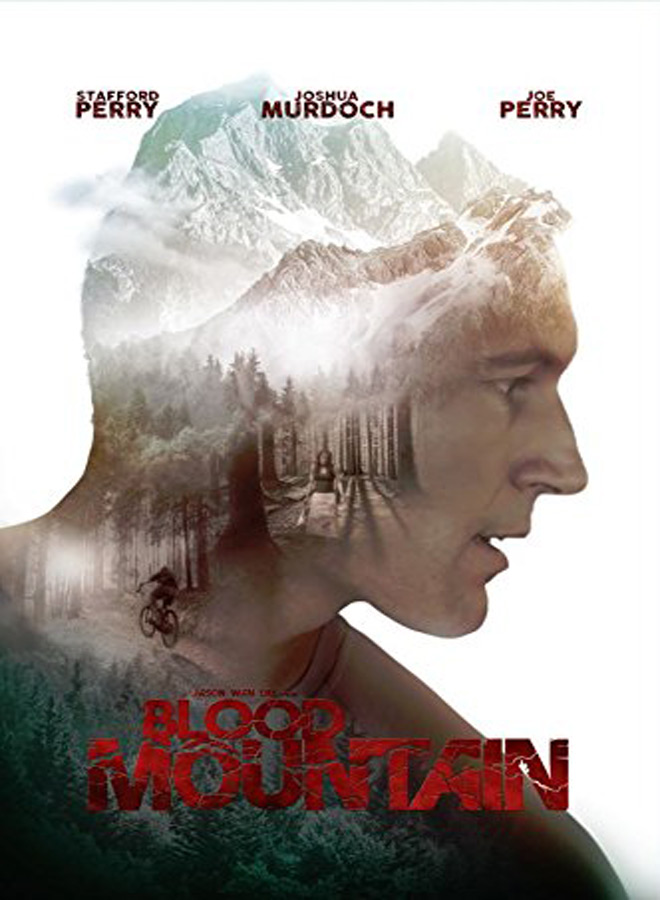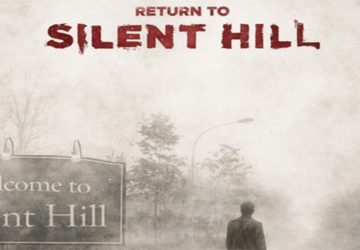Initially released at the Calgary Underground Film Festival in 2017, Blood Mountain makes its way to DVD in North America on Tuesday July 24, 2018, thanks to House Lights Media. Directed by Jason Wan Lim (Out of the Way Gourmet TV movie 2016, Marry Me Alberta documentary 2016) it follows Colt Carson (Stafford Perry: Damnation series, In Plainview 2018) and Paul Carson (Joe Perry: A Miracle on Christmas Lake 2016, Faultline mini-series) as they take on a mountainous adventure that proves to be far deadlier than they first thought.

A majority of Blood Mountain’s strength comes from its sense of scale: while many Horror films will mistakenly widen their focus and tell a larger story than what would be most effective, Blood Mountain manages to keep things consistently small and contained. Needless to say, in the era of the superhero blockbuster, a film that doesn’t just try to go small but manages to stick to its guns and never stray from that principle is more than slightly welcome. That is to say, the film is no-frills and tightly-focused from the very first shot; it wastes no time, quickly throwing the audience into the action by establishing its tone and diving right into the characters.
If there is any area where Blood Mountain does indeed truly set itself apart from its Horror contemporaries, it is in it its character work. In fact, this is what contributes more than anything else to the film’s successfully focused scale; the writing and direction clearly realizes that this is a character piece first and a scream-flick second, with the former only making the properties of the latter more grounded and visceral. It manages to do this through little more than good. Old-fashioned well-written dialogue – for the most part.
Generally speaking, the dialogue hints and implies more about the characters than it directly tells, constantly giving the audience enough to propel the plot forward, but human and nuanced enough that it rings true as the authentic talk of human beings; it is constructed, but not too constructed, and therefore effective. However, this is not an area the film consistently excels in – while it usually balances exposition with authenticity, there are times when it stumbles, and scenes devolve into pointed exposition. Interestingly, the performances mirror the weaknesses of the writing in this way: when the writing is effective, the performances are effective in kind and when it is not, they too are not. This is not a film where the strength of the performances can overcome clunky writing, but rather the performances seem to be in-line with the strength of the writing on a scene-by-scene basis.
However, the strength of the character work raises the quality of the film above many other Horror films, and certainly above that of many Horror films within its specific subgenre – the Found Footage film. Additionally, Blood Mountain utilizes the advantages of the Found Footage format in ways that are hardly revolutionary but nevertheless impactful. There can be a tendency within some films to see the Found Footage format as a cheap and easy way to make a film; the format is often utilized because it’s a convenient excuse for shoddy production, not because of its artistic merits.

This does not seem to be the case with Blood Mountain, as the intimacy of the Found Footage format is deployed well within some key scenes to give some of the graphic Horror a gut-punch that wouldn’t be possible with a traditional shooting method. There is one particular scene where a wound is being stitched up that particularly benefits from this level of personalization and is a clear testament to how well the format can be used when it’s used with thought and tact.
Aside from these moments however, the cinematography is generally more functional than inspired. This seems to be the case with much of the film, as commented on previously – it’s intermittently very interesting, with stretches that are fairly by-the-numbers. It must be said that the film’s primary outdoor setting is well-photographed though, even within the constraints of Found Footage.
Finally, Blood Mountain’s climax is unfortunately sold a little hard, and feels artificial in its production, even though the story beats that underpin it had the potential to be something much more effective. Although the climax would have been better executed if it was handled with a little more subtlety, the film does arrive at that climax in a manner that is increasingly appreciated; that is to say, the film is quick and paced well, exploring its premise without overstaying its welcome. For all of these reasons, CrypticRock gives Blood Mountain 3 out of 5 stars.







No comment